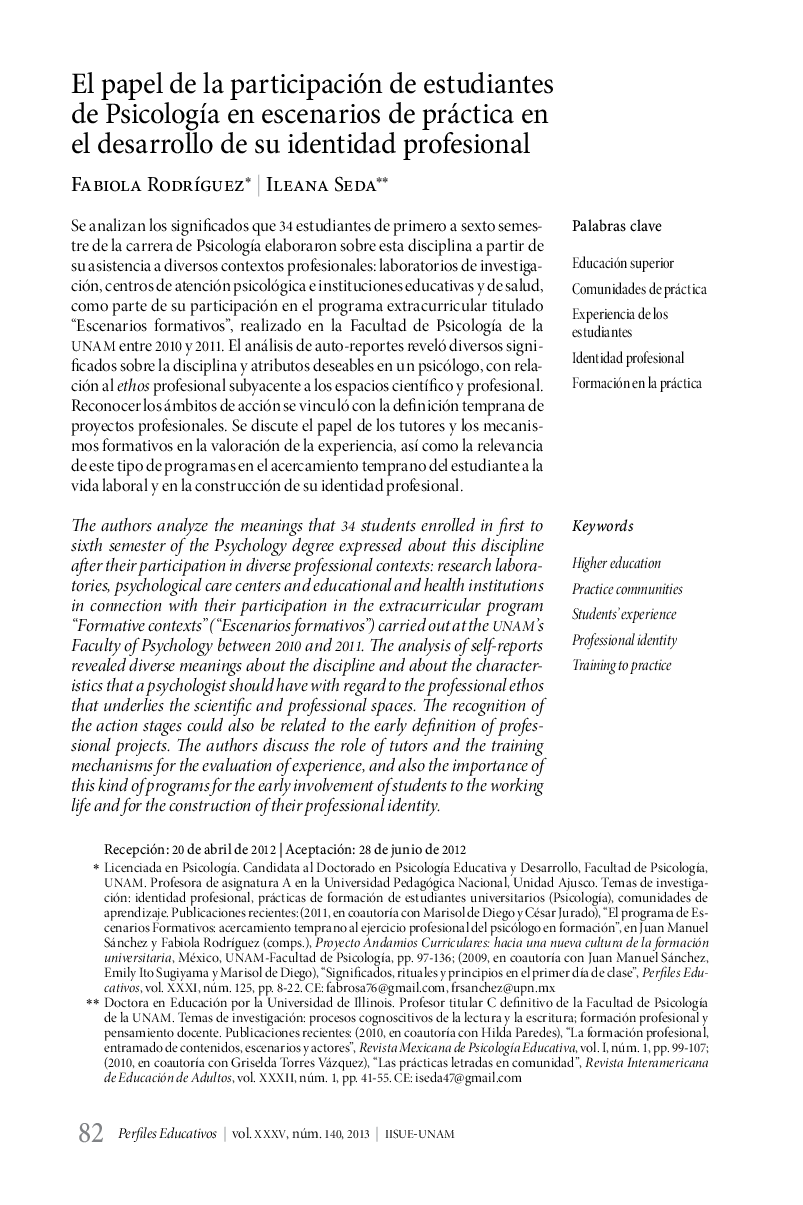| Article ID | Journal | Published Year | Pages | File Type |
|---|---|---|---|---|
| 369832 | Perfiles Educativos | 2013 | 18 Pages |
Se analizan los significados que 34 estudiantes de primero a sexto semestre de la carrera de Psicología elaboraron sobre esta disciplina a partir de su asistencia a diversos contextos profesionales: laboratorios de investigación, centros de atención psicológica e instituciones educativas y de salud, como parte de su participación en el programa extracurricular titulado “Escenarios formativos”, realizado en la Facultad de Psicología de la unam entre 2010 y 2011. El análisis de auto-reportes reveló diversos significados sobre la disciplina y atributos deseables en un psicólogo, con relación al ethos profesional subyacente a los espacios científico y profesional. Reconocer los ámbitos de acción se vinculó con la definición temprana de proyectos profesionales. Se discute el papel de los tutores y los mecanismos formativos en la valoración de la experiencia, así como la relevancia de este tipo de programas en el acercamiento temprano del estudiante a la vida laboral y en la construcción de su identidad profesional.
The authors analyze the meanings that 34 students enrolled in first to sixth semester of the Psychology degree expressed about this discipline after their participation in diverse professional contexts: research laboratories, psychological care centers and educational and health institutions in connection with their participation in the extracurricular program “Formative contexts” (“Escenarios formativos”) carried out at the UNAM's Faculty of Psychology between 2010 and 2011. The analysis of self-reports revealed diverse meanings about the discipline and about the characteristics that a psychologist should have with regard to the professional ethos that underlies the scientific and professional spaces. The recognition of the action stages could also be related to the early definition of professional projects. The authors discuss the role of tutors and the training mechanisms for the evaluation of experience, and also the importance of this kind of programs for the early involvement of students to the working life and for the construction of their professional identity.
